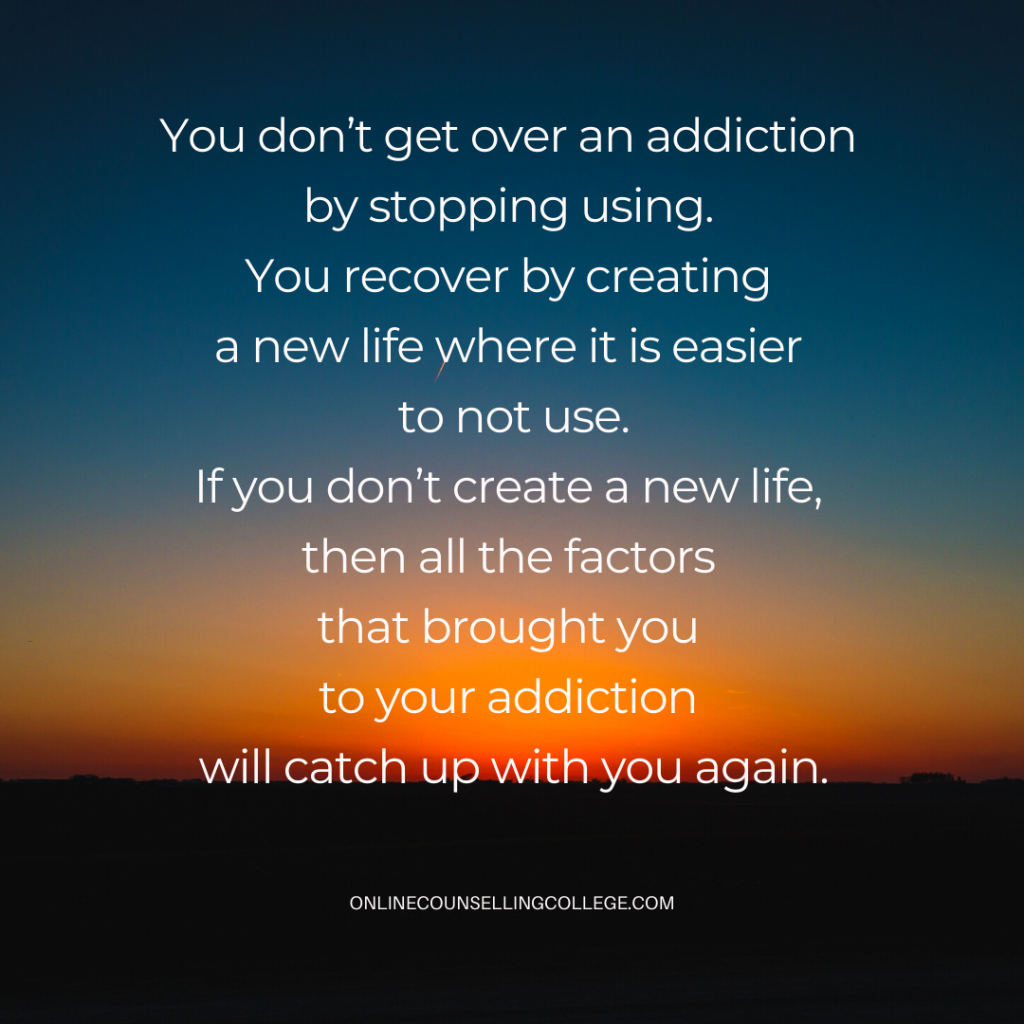
Defining Addiction
An addiction is a compulsive need for any habit-forming substance, or the drive to engage in any habit-forming behaviour.
The term compulsive highlights how strong, and almost irresistible, this impulse or drive is. The compulsive nature of an addiction is most clearly apparent in the fact that when the person wants to stop, they find they can’t. Instead, they are powerfully drawn back to the substance or behaviour.
Addictions are also characterized by an increasing tolerance, and by experiencing symptoms related to withdrawal. Typically, this takes the form of constantly seeking for a greater thrill, or a “higher high”. With a sex addiction, the person may feel driven to do something more forbidden to feel turned on.
The easiest way to find out if you’re addicted or not is stop cold turkey, and to try to walk away for good. Your reaction to this will reveal if you’re dependent or not.
How we get Addicted
Usually addictions begin with a need to seek relief, distraction, or comfort for some kind of pain. Pain has a voice and it demands our attention – and we’re wired to pay attention, and to try to protect ourselves from further pain.
So an addiction is a coping mechanism. An attempt to escape from what, at the time, feels like intolerable pain – physical, social or emotional. (This could include abuse, trauma, rejection, abandonment, loneliness, insecurity, anxiety, stress, and so on.)
Unfortunately, though we build up a tolerance. This means we need more and more of the substance – or more intense or different experiences – in order to get the high we want. This sets a cycle in motion which is demanding and destructive. It can lead us to places we never thought we’d go … Where we engage in risky actions and go against our moral code.
Can we get free of an Addiction?
Yes, but it takes a huge amount of effort. You need to be committed, and completely dedicated to your goal. You will need to understand your own personal triggers, and the underlying needs that are driving the behaviour. You are going to need support. You can’t break free of an addiction on your own.
You will need to be accountable to someone (a counsellor, therapist, or accountability partner.)
But this is how you are able to rewire your brain.
What about Relapses?
You don’t just turn off a switch and walk away from an addiction, once and for all. Recovery is a process. A long process. Inevitably, there will be some slip ups.
If these occur too often it may indicate the following:
1. The person may not yet be truly be committed to abstention and recovery. Also, they may still have secrets.
2. Alternatively, they may be living in denial and (wrongly) believe they can control their addiction at will.
3. The person might not have good structures in place, structures which would protect them when they felt tempted, or were triggered.
4. There may be unresolved issues, or trauma, from their past which has not been addressed, and is still driving the addiction.
“You don’t get over an addiction by stopping using. You recover by creating a new life where it is easier to not use. If you don’t create a new life, then all the factors that brought you to your addiction will catch up with you again.”

The statement in the picture and at the end of your post is a compelling one. Many in my extended family struggle with alcohol abuse. Times of sobriety have been followed by relapses. In many cases your statement opens my eyes to the fact that a new life is needed to escape addiction. Thank you for sharing this.
LikeLiked by 1 person
Thanks for this David. Breaking free from an addiction is so very difficult, and relapses are common (and depressing). Creating a new life is the best chance we have of staying free. But it is definitely a struggle …
LikeLiked by 1 person
Very wise. This applies not only to the use of drugs or alcohol, but other self-destructive behaviors.
LikeLike
[…] Understanding Addiction […]
LikeLiked by 1 person
Thanks for sharing this with your readers 🙂
LikeLike